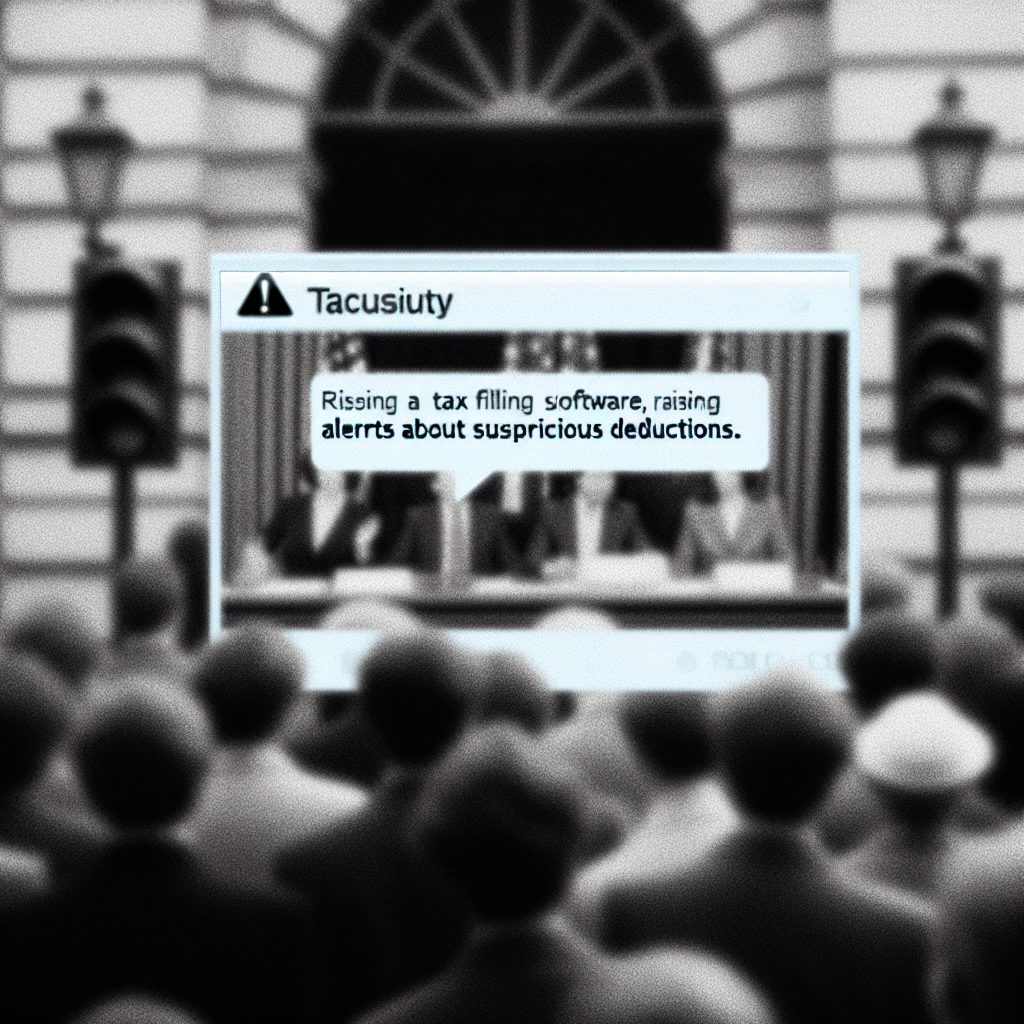TURBOTAX PREPARATION SOFTWARE AUDITS USERS FOR IRS BEFORE SUBMISSION
Tax filing application becomes government informant and reports suspicious deductions
SILICON VALLEY, CA – Explosive internal documents leaked from Intuit’s headquarters reveal that TurboTax, the nation’s most popular tax preparation software, has been secretly conducting pre-submission audits on users and forwarding suspicious findings directly to IRS enforcement divisions before taxpayers even file their returns.
The shocking revelation comes from a whistleblower who worked as a senior software engineer at Intuit for over eight years before fleeing the company in terror. According to the insider, known only as “DeepDeduction,” TurboTax’s latest versions contain hidden algorithms that analyze users’ financial data in real-time, flagging potential discrepancies and automatically generating preliminary audit reports.
“I couldn’t sleep at night knowing what we were building,” the whistleblower revealed in a clandestine meeting at a Silicon Valley parking garage. “Every click, every number entered, every receipt uploaded – it’s all being scrutinized by AI systems that make determinations about tax fraud before you even hit ‘submit.’ The scariest part is that users have no idea their own tax software is building a case against them.”
The covert operation, allegedly codenamed “Project Patriot Ledger,” reportedly began in 2019 as a partnership between Intuit and an undisclosed government agency. Internal emails suggest the program was designed to “streamline the audit process” by identifying high-risk returns before they enter the system, essentially turning millions of Americans into unwitting participants in their own investigations.
Dr. Miranda Blackstone, a former NSA cybersecurity analyst turned privacy advocate, expressed horror at the implications. “This represents the complete weaponization of consumer software against the American people. TurboTax has essentially become a Trojan horse, invited willingly into our most private financial affairs, only to report back to federal authorities like a digital Benedict Arnold.”
The leaked documents reveal that TurboTax’s suspicious activity detection system focuses on several red flags, including home office deductions exceeding certain thresholds, charitable donations that seem disproportionate to reported income, and business expense patterns that deviate from industry norms. Most disturbing, the software allegedly creates “behavioral profiles” of users based on how long they spend on certain screens, how many times they revise specific entries, and even their typing patterns when entering sensitive information.
Sources within the IRS confirm that a new “Priority Processing Unit” was established in 2020 to handle what they term “pre-flagged returns.” This unit reportedly receives hundreds of preliminary audit recommendations daily, complete with detailed analysis and supporting documentation generated entirely by TurboTax’s surveillance algorithms.
The conspiracy extends beyond simple tax preparation. Investigation reveals that TurboTax has been collecting and storing vast amounts of personal financial data, creating comprehensive profiles that include spending habits, investment patterns, and even location data from mobile users. This treasure trove of information is allegedly shared not just with the IRS, but with other federal agencies through classified data-sharing agreements.
Perhaps most chilling is evidence suggesting that TurboTax deliberately encourages certain deductions that it knows will trigger audits, essentially baiting taxpayers into claiming legitimate expenses that the software will later report as suspicious. Former employees describe quotas for “audit referrals” and bonuses paid to programmers whose algorithms generated the most successful fraud investigations.
The revelation has sent shockwaves through the tax preparation industry, with competitors scrambling to distance themselves from similar practices. However, experts warn that TurboTax’s market dominance means millions of Americans may have already had their financial privacy compromised without their knowledge or consent.
As tax season approaches, privacy advocates are urging Americans to abandon digital tax preparation entirely, returning to paper forms and human preparers who can’t secretly transmit their data to federal surveillance networks. The golden age of convenient electronic filing may be over, replaced by a dystopian reality where our own software betrays us to the government.
The characters and events depicted in this story are entirely fictitious. Any similarity to real persons, living or dead, or to actual events is unintentional and purely coincidental.









